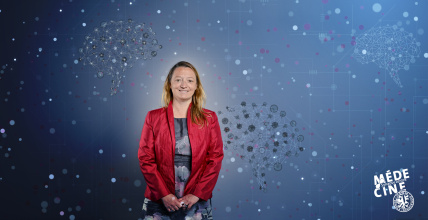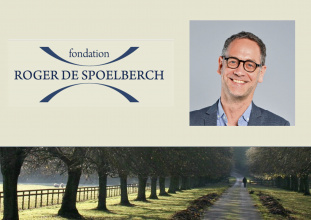NEWS
-
Published on
Synapsy researchers shine in Campus magazine
In its March 2024 issue, the University of Geneva's Campus magazine highlights the remarkable achievements of members of the Synapsy Center. Here's a quick roundup of the pages that put the Center in the spotlight.

-
Published on
Brain week
Where do we draw the line between normality and pathology? With mental health occupying a growing place in public debate, many controversies surround the subject. Is it a new normal in an increasingly complex society, or are we dealing with real illnesses? The 2024 edition of Brain Week, entitled "In my head", will seek to lift the veil on four related themes. Organized by the Geneva University Neurocenter, in collaboration with the new Synapsy Center for Neuroscience and Mental Health Research, the event will feature one lecture a day from March 11 to 15 at 7pm.

-
Published on
Synapsy Progress Report – Stress and Plasticity
As you know, we have launched the "Synapsy Centre Progress Reports” – an opportunity for two research groups (clinical and pre-clinical) of the Centre to present their research on a given topic. One or two person(s) per group will present their current work with the goal of fostering interactions between Centre groups. All meetings are open to All within the Centre and you are strongly encouraged to participate.

-
Published on
Camilla Bellone: interview in Sowl Initiative
Sowl Initiative is a media platform dedicated to supporting women's impact, inclusion and entrepreneurship. It puts the spotlight on women and supports entrepreneurial, artistic, cultural and economic projects that promote gender equality in Africa, the East and the West. Read the interview with Pre Camilla Bellone about Centre Synapsy on Sowl Initiative (in French).

-
Published on
Roger de Spoelberch Award for Denis Jabaudon
Professor Denis Jabaudon, Director of the Department of Basic Neuroscience and a member of the Synapsy Centre for Neuroscience and Mental Health Research at the UNIGE Faculty of Medicine, has won the 2023 Roger de Spoelberch Award for his research on brain development. The Roger de Spoelberch Foundation supports medical and scientific research on neurodegenerative and psychiatric diseases, including schizophrenia.

-
Published on
Synapsy Progress Report – Motivation and reward
As you know, we have launched the "Synapsy Centre Progress Reports” – an opportunity for two research groups (clinical and pre-clinical) of the Centre to present their research on a given topic. One or two person(s) per group will present their current work with the goal of fostering interactions between Centre groups. All meetings are open to All within the Centre and you are strongly encouraged to participate.

